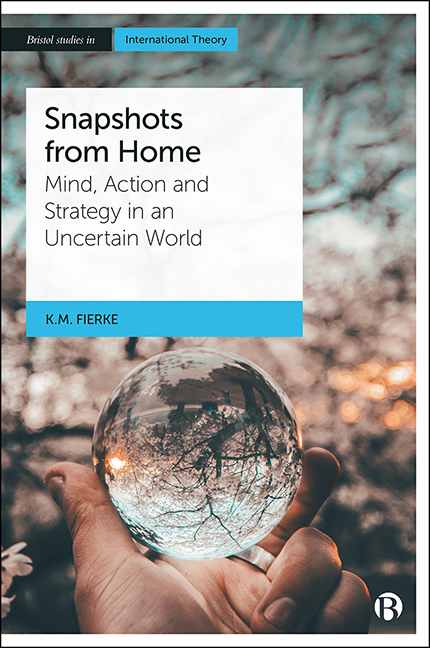5 - Navigating a Participatory Universe
Published online by Cambridge University Press: 15 September 2022
Summary
Without performing action man [sic] is not free from the bondage of action.
Bhagavad Gita, Karmayoga 3(4)The fundamental shift that emerges from the snapshots thus far is from ‘being’ or ‘thing-ness’ and the pursuit of truth (indebted to Newtonian science) to ‘doing’, which relates to experience and action in the world. The latter is more characteristic of quantum theory, Buddhism and Daoism. Buddhism and the Daoist ‘acosmos’ do not rely on divisions into ‘levels of analysis’. The latter practice has played an important role in the constitution of international relations as a separate field of study. In its place we see a holographic relationship between parts and wholes, with overlapping and extending circles in continuous motion, where self, mind, body, language, sentience and emotions all matter, not only for humans but for all life. While not constituting a theory of everything, the snapshots do suggest that everything is ‘in the soup’ (Ling, 2013: 99). The world is in motion. Things are always happening. Change and impermanence are the norm rather than the exception. As Ames and Hall (2003: 13) state, the Daoist correlative cosmology begins with the assumption that ‘the endless stream of always novel yet still continuous situations we encounter are real, and hence, that there is ontological parity among the things and events that constitute our lives.’ Buddhism and Daoism provide insight into how the actant might, in the midst of swirling motion, act from a place of calm while maximizing the potentials of a situation. The Daodejing advises against trying to impose control over the motion as the result will be a loss of control. Nature will, on its own, re-establish a balance if humans would only stop inundating it with toxins.
A particular type of human artefact, which emerged with the industrial revolution and the development of science, sought control over nature to the end of allowing human flourishing and progress. With the emergence of the Anthropocene, this control is almost complete. Control of nature, as Cheng (2018) argues, goes hand in hand with the political domination of human beings.
- Type
- Chapter
- Information
- Snapshots from HomeMind, Action and Strategy in an Uncertain World, pp. 173 - 197Publisher: Bristol University PressPrint publication year: 2022



